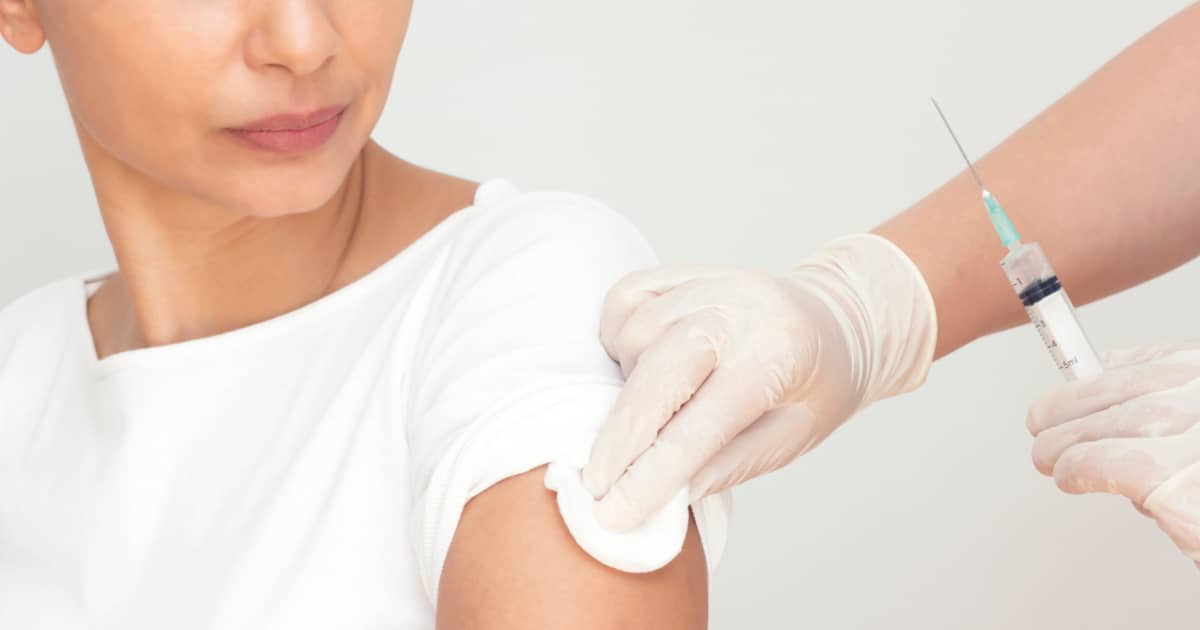A single injection of a medication called cabotegravir is proving to be an effective form of HIV pre-exposure prophylaxis (PrEP), a new study suggests.
Run by the HIV Prevention Trials Network, the study focused on an effective form of HIV PrEP that is especially tailored to the needs of women. To assess the effectiveness of cabotegravir, researchers compared it against the current most popular form of PrEP utilised right now – Truvada. Truvada comes in the form of a daily pill while cabotegravir is administered as a single infection.
New Possibilities for Reliable HIV PrEP Development
The World Health Organization recently presented the details of the trial and its promising findings.
Known as HPTN 084, the study enrolled 3,223 women aged 18 to 45. All of the participants were at a relatively high risk of contracting HIV. The women enrolled in the trial live in seven Sub-Saharan African countries – Kenya, Botswana, South Africa, Malawi, Uganda, eSwatini and Zimbabwe.
Study participants were divided in two groups – one of the groups received an intramuscular cabotegravir injection every eight weeks and women in the second group were given a daily oral dose of Truvada plus an injectable placebo at the same interval of time.
Researchers monitored the health of participants over the course of three years.
Of all study participants 38 became HIV-positive over the course of the clinical trial. Of these women, four belonged to the cabotegravir group and 34 belonged to the Truvada and placebo injection group. These numbers translate to an HIV infection rate of 0.21 per cent in the cabotegravir group and 1.79 per cent in the Truvada group.
Researchers reached the conclusion that both methods of PrEP were highly effective but cabotegravir did an 89 per cent better job than the daily pills.
Why the New Findings Are So Important
The team that worked on the research believes that the findings are of incredibly high importance.
Until now, women in Sub-Saharan Africa have been offered one of three HIV prevention options – abstinence, barrier contraception like condoms and a daily Truvada pill. Unfortunately, some African countries do not have well-developed healthcare infrastructure to ensure the effortless access to the last two options. These gaps left many women vulnerable.
Young women in Africa are one of the most vulnerable groups in terms of HIV infections precisely because of the difficult access to prevention and medical services in some parts of the continent.
In 2019, 1.7 million people across the world became newly infected with HIV. Of these people, approximately one million live in African countries. In South Africa and Botswana, 20 per cent of people in the 15 to 49 age group live with the virus. The situation is even more dire in eSwatini where 27 per cent of the population in the same age group is infected.
While PrEP in the form of pills delivers excellent results in clinical trials, the situation isn’t as optimistic in the real world.
Many people in need find it difficult to access the pills that need to be taken over a specific period of time in order to ensure reliable protection. In addition, some individuals could skip a dose – a relatively common phenomenon.
Injectables need to be administered less frequently, which increases convenience. In addition, adherence to an administration schedule is likely to be higher due to the fact that a daily dose is not required to get results.
The study also found out that traces of cabotegravir remain in the body for as long as two months. This means that the administration of additional injections doesn’t have to happen very often for prevention to be effective. The clinicians believe that cabotegravir could actually be administered only two times per year and it would still offer sufficient protection against the human immunodeficiency virus.
Cabotegravir: The PrEP of the Future?
This isn’t the first study that examines the effectiveness of cabotegravir as HIV PrEP.
A previous clinical trial focused on men who had sex with men. Researchers discovered that in this demographic, cabotegravir is an equally effective form of HIV prevention.
In Canada, cabotegravir has already received approval as a form of HIV treatment in combination with another drug. The therapeutic medication is sold under the brand name of Cabenuva there.
The developer of the medication is now seeking regulatory approval in the US, as well. The US Food and Drug Administration (FDA) will have to examine the potential of cabotegravir to be used as both a form of PrEP and post-exposure prophylaxis (PEP). According to some estimates, such approval could be received over the course of 2021. If the medication becomes regulated in the US, new opportunities will be opened up for the exploration of innovative and easily accessible PrEP medication.
Don’t Hesitate to Seek Treatment!
If you are in Singapore, you are HIV positive or you worry about potential exposure, visit a reputable STD clinic in Singapore.
Both HIV PrEP and PEP are readily available at Shim Clinic.
These medications are over 90 per cent effective in the prevention of an infection. This is why you shouldn’t just worry and postpone a medical visit. The sooner you get started, the better the outcome is going to be.
References:
- Cabotegravir | ClinicalInfo. (n.d.). Clinical Info. Retrieved November 17, 2020, from https://clinicalinfo.hiv.gov/en/drugs/cabotegravir/patient
- HPTN 084. (n.d.). The HIV Prevention Trials Network. Retrieved November 17, 2020, from https://www.hptn.org/research/studies/hptn084
- World Health Organization. (2020, November 9). Trial results reveal that long-acting injectable cabotegravir as PrEP is highly effective in preventing HIV acquisition in women. https://www.who.int/news/item/09-11-2020-trial-results-reveal-that-long-acting-injectable-cabotegravir-as-prep-is-highly-effective-in-preventing-hiv-acquisition-in-women

